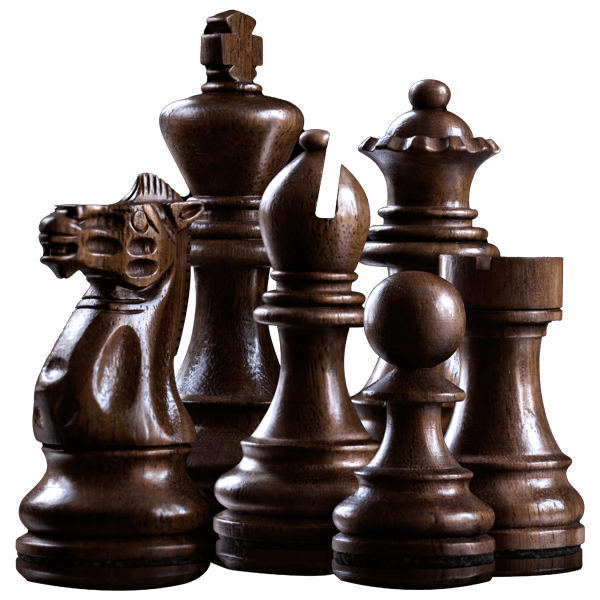Betting on the number of moves in a chess match is a popular over/under wager where bettors predict whether a game will finish before or after a specific number of moves set by the bookmaker. For instance, if a game between Anish Giri and Fabiano Caruana has a total line of 42.5 moves, betting “under” means you win if the game concludes in 42 moves or fewer, while betting “over” means you win if the game extends to 43 moves or longer2. This betting market adds excitement to chess viewing and offers strategic opportunities for those who understand chess dynamics and player tendencies.
Understanding How Chess Moves Are Counted
Before placing bets on move totals, it’s essential to understand how moves are counted in chess. A single “move” in chess consists of both White and Black making their plays. For example, when White plays 1. e4 and Black responds with e5, this constitutes one complete move3. The technical term for a single player’s action is a “ply” or half-move3.
When a game is said to end on “move 47,” this means both White and Black moved at least 46 times, with one player making the 47th move3. This distinction is crucial for betting purposes, as bookmakers set lines based on full moves (both players acting), not individual plies.
How Chess Move Total Betting Works
Bookmakers typically offer move total markets with a number that includes a .5 decimal (such as 42.5) to avoid pushes or ties. Bettors then wager on whether the actual total will go over or under this line7. The odds for both sides might vary depending on player styles, tournament conditions, and other factors.
This betting market is similar to totals or over/under bets seen in other sports2. It’s particularly appealing to chess enthusiasts who want to add financial stakes to their viewing experience without necessarily predicting the winner.
Factors That Influence the Number of Moves in Chess
Player Styles
Some players consistently engage in longer or shorter games based on their playing style. Aggressive attackers often play shorter games, while solid, positional players frequently engage in longer matches. Understanding these tendencies can give you an edge when betting.
Opening Choices
Certain chess openings tend to result in longer or shorter games. Some openings lead to complex tactical battles that can end more quickly, while others frequently produce more positional, drawn-out encounters.
Tournament Context
Players might adopt more conservative approaches (resulting in longer games) during the early stages of tournaments, while taking greater risks (potentially shorter games) when they need decisive results later in the competition4.
Time Control
The time format significantly affects game length. Classical chess games with hours of thinking time tend to last longer than rapid or blitz games. Always check the time control format before placing your bets5.
Skill Differential
A substantial rating gap between players can lead to shorter games, as the stronger player might convert advantages more efficiently. However, in matches between evenly matched grandmasters, an average game typically lasts around 40 moves10.
Strategies for Betting on Chess Moves
Study Historical Data
Review the players’ previous encounters and their average game length. This data can provide valuable insights into how long their upcoming match might last.
Consider Drawing Tendencies
Some players are more inclined to agree to draws, which typically occur around move 30-40 in many top-level games. Players known for their drawing tendencies might influence the total move count.
Tournament Situation
A player needing a win to qualify for the next stage might play on in positions they would otherwise agree to draw9. Understanding these contextual factors can help predict whether a game will go longer than usual.
Analyze the Opening Repertoire
If you know which openings the players prefer, you can better predict the likely game length. Deep opening preparation can lead to longer games as players navigate complex theoretical positions cautiously.
Other Chess Betting Markets
While betting on the number of moves is popular, there are several other chess betting markets to consider:
Match Winner
This is the simplest bet where you wager on which player will win the match7.
Handicap Betting
Bookmakers offer handicap betting for matches with clear favorites, adjusting the odds to make betting more appealing7.
Opening Move
You can bet on which opening move or strategy a player will employ at the start of the game7.
Tournament Betting
Beyond individual games, you can bet on tournaments as a whole, including outright winners and team performances7.
Frequently Asked Questions (FAQ)
How do bookmakers determine the move total line for chess matches?
Bookmakers consider several factors including the historical average length of games between the specific players, their playing styles, the tournament context, and general statistics about average game length in high-level chess (typically around 40 moves)10.
If a game ends in resignation or a draw by agreement, how is the move count determined?
The move count is determined by the last completed move where both White and Black have moved. If White resigns on their 43rd move before Black responds, the game would be considered to have lasted 42 moves3.
Does the chess handicap system affect the number of moves in a game?
Yes, chess handicaps (where one player starts with fewer pieces) can significantly impact game length1. Handicap games often follow different patterns than standard games, potentially affecting the total move count.
Is betting on chess moves considered gambling or strategy?
Like professional poker players who make strategic bets based on calculated probabilities, betting on chess moves is more strategic than pure gambling13. Success requires understanding chess fundamentals and player-specific dynamics rather than chance alone.
Can watching live chess help with betting on move counts?
Yes, in-play or live betting allows you to wager on matches as they progress7. Observing the game development can help you make more informed decisions about whether the total moves will go over or under the line.
Is there a correlation between the chess opening and the number of moves?
Yes, certain openings tend to produce longer or shorter games. Studying opening theory can provide insights into the likely length of a match based on the initial moves6.
Conclusion
Betting on the number of moves in chess matches offers an intellectually stimulating wagering option that combines chess knowledge with betting strategy. Unlike traditional sports betting that might rely heavily on physical performance, chess betting rewards deep understanding of the game’s dynamics, player psychology, and tournament contexts.
By analyzing player styles, opening preferences, and tournament situations, you can make informed decisions about whether games will run longer or shorter than the bookmakers’ lines. As with all forms of betting, approach it responsibly and use your chess knowledge to gain an edge in this unique betting market.
Remember that just as chess is a game of strategy rather than chance, betting on chess moves should be approached with the same analytical mindset that makes both chess and SEO strategic endeavors rather than games of luck611.

